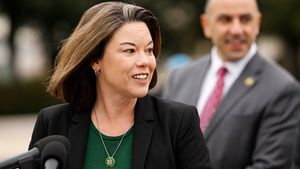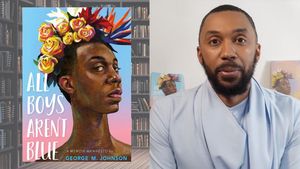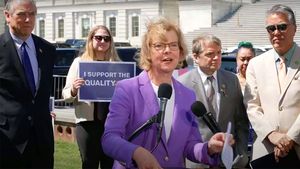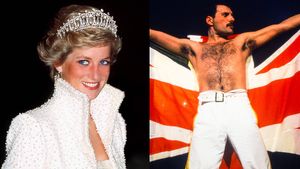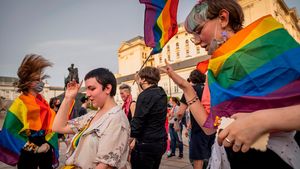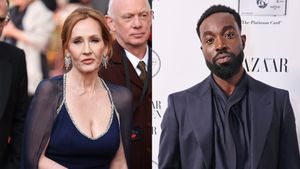During last week’s Super Bowl, Beyoncé Knowles-Carter did what she does best — broke the internet with new music releases. Only this time, it came with not one but two country singles as she ushers in the next chapter of her Renaissance project: Act II.
Faster than you could say “unique,” “Texas Hold ‘Em” is a rousing hoedown tribute to Houston, with “16 Carriages” a vulnerable autobiographical ballad. Almost immediately, the songs took off on streaming and were discussed on social media platforms.
Just a week later, Queen Bey became the first Black woman artist with a number-one country record as “Hold ‘Em” debuted at the top of the Billboard Hot Country Songs chart.
It’s remarkable witnessing a once-in-a-lifetime talent like Beyoncé continue to break records in entertainment, but her new foray into country has also awakened a conversation about the genre’s debt to Black artists.
Though we’ve seen successful Black country musicians recently such as Mickey Guyton, Jimmie Allen, and Kane Brown, the vertical has been quite hostile to outsiders.
You may recall back in 2019, Lil Nas X’s “Old Town Road” which blended country and hip-hop elements gained popularity on TikTok before making its way to the Country charts. Then, Billboard removed it, citing that it did not “embrace enough elements of today’s country music.” This decision sparked controversy and discussions about racial dynamics within the country music industry. Many argued that excluding "Old Town Road" from the country chart highlighted racial biases and a lack of inclusivity in the genre.
In response to the controversy, prominent country artists, most notably Billy Ray Cyrus, collaborated with Nas on a remix of the song, which helped it gain even more popularit., the duo won Music Event of the Year for the track at the Country Music Awards, making Nas the first openly gay artist to do so.
But as critics and country fans continue to weigh in on Mrs. Carter’s new material, this a reminder: country music belongs to Black people.
Like slang, cornrows, and Timberlands, the genre was appropriated by white folks. And like the cause of most societal problems, all dusty roads point back to slavery.
Like “Texas Hold ‘Em,” country music’s story begins with the banjo. Knowing Beyoncé, that was intentional. When enslaved people were brought to America from Africa, they brought their instruments, and the banjo was one of them. During the minstrel show era, where white folks dressed up and mocked Black people and Black culture, they unintentionally introduced the banjo to white audiences.
Then it was appropriated.
In his 2013 essay “Black Hillbillies: African American Musicians on Old-Time Records, 1924-1932,” Patrick Huber, a history professor at Missouri University of Science and Technology, detailed a time when white and Black artists would collab on country songs, then known as hillbilly records.
But some marketing genius (read: sarcasm), felt consumers bought music based on their race. So, the industry separated “hillbilly records” and “race records.” According to Huber, this resulted in Black performers being uncredited and even scrubbed from songs’ marketing. A recent example of this is T-Pain, who recently addressed being uncredited on songs he’s written for country artists for fear of backlash.
With Black artists historically pushed out of country music, and the associated charts, it became what most think of it as today — music for white southerners.
But like Little Richard taught The Beatles, Gus Cannon taught Johnny Cash. Behind many of your favorite white country artists was a talented but uncredited and uncelebrated Black artist.
Uncelebrated like DeFord Bailey, the first Black artist to play the Grand Ole Opry. And Linda Martell, the first Black woman to perform there. Uncelebrated like Charley Pride, one of the most successful Black country stars of all time with 29 number-one hits in the genre—more than Dolly Parton or Reba McEntire, or Willie Nelson, yet I bet you know their names and not his.
That’s what makes me so excited for act two of Renaissance. In the way she celebrated the unrecognized and underappreciated contributions of Black artists in ball culture, dance music, and club culture, I am eager to see how Beyonce gives our country music ancestors their flowers.
And if anyone has a problem with that, tell them to giddy up out the way.
Lamar Dawson is a pop culture writer, radio personality, and content creator. He hosts the TikTok Billboard Top 10 Countdown on SiriusXM’s TikTok Radio. He's also written for NBC News, Billboard, and GQ. You can find him on TikTok and Instagram, reliving pop culture nostalgia @dirrtykingofpop.
Do you have an opinion on an issue to share or an inspiring personal story to tell? Visit out.com/submit to learn more.









